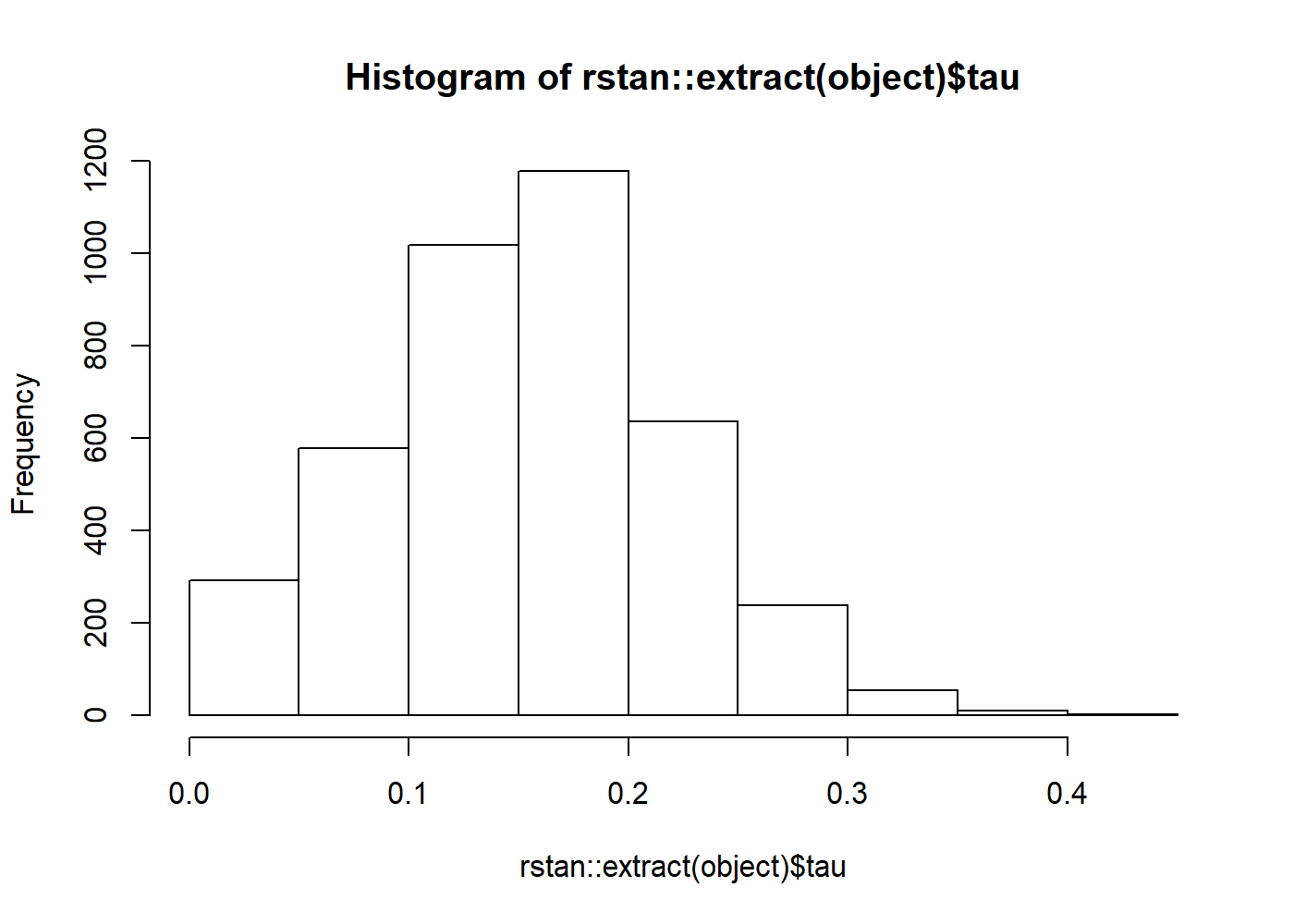

An R package for Bayesian meta-analysis that accounts for publication bias or p-hacking.
publipha is an package for doing Bayesian meta-analysis that accounts for publication bias or p-hacking. Its main functions are:
psma does random effects meta-analysis under publication bias with a one-sided p-value based selection probability. The model is roughly the same as that of (Hedges, 1992)phma does random effects meta-analysis under a certain model of p-hacking with a one-sided p-value based propensity to p-hack. This is based on the forthcoming paper of by Moss and De Bin (2019).cma does classical random effects meta-analysis with the same priors as psma and cma.Use the following command from inside R:
Call the library function and use it like a barebones metafor::rma. The alpha tells psma or phma where they should place the cutoffs for significance.
library("publipha")
# Publication bias model
set.seed(313) # For reproducibility
model_psma = publipha::psma(yi = yi,
vi = vi,
alpha = c(0, 0.025, 0.05, 1),
data = metafor::dat.bangertdrowns2004)
# p-hacking model
set.seed(313)
model_phma = publipha::phma(yi = yi,
vi = vi,
alpha = c(0, 0.025, 0.05, 1),
data = metafor::dat.bangertdrowns2004)
# Classical model
set.seed(313)
model_cma = publipha::cma(yi = yi,
vi = vi,
alpha = c(0, 0.025, 0.05, 1),
data = metafor::dat.bangertdrowns2004)You can calculate the posterior means of the meta-analytic mean with extract_theta0:
If you wish to plot a histogram of the posterior distribution of tau, the standard deviation of the effect size distribution, you can do it like this:

If you encounter a bug, have a feature request or need some help, open a Github issue. Create a pull requests to contribute. This project follows a Contributor Code of Conduct.